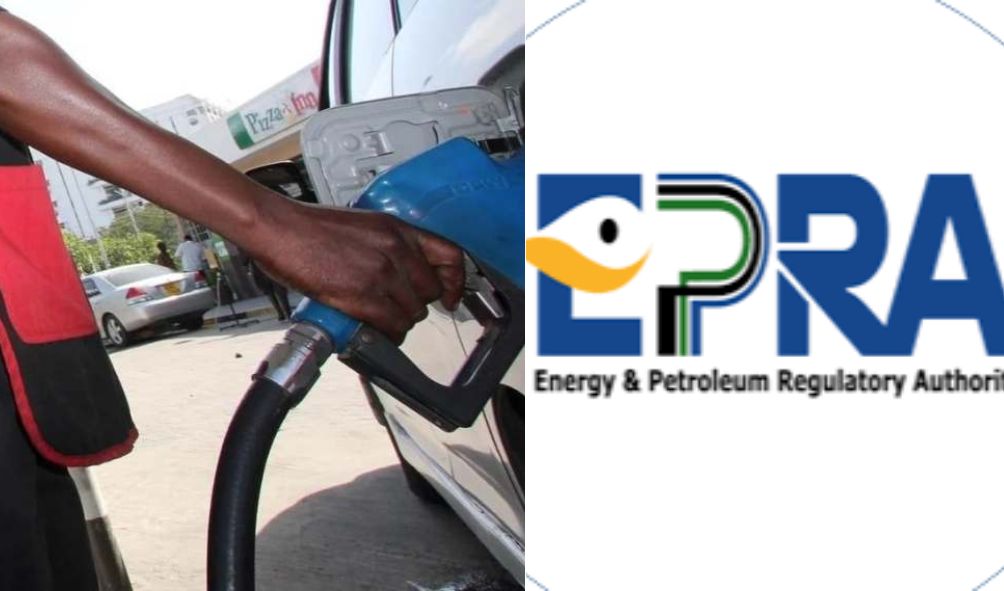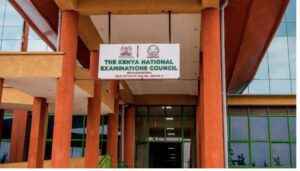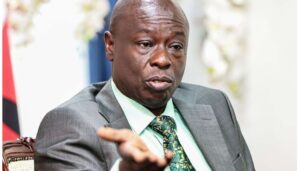Higher electricity and fuel prices as Ruto seeks to double EPRA levy

Kenya's fuel and electricity prices are set for a fresh increase on proposed changes to the law to double the EPRA levy charged on the two products
Kenya’s fuel and electricity prices are set for a fresh increase on proposed changes to the law to double the EPRA levy charged on the two products.
The country’s Statute Law (Miscellaneous Amendments) Bill, 2023 has proposed to amend the Energy Act of 2019 by doubling Energy and Petroleum Regulatory Authority’s (Epra) levy to a maximum of 1 percent from the current ceiling of 0.5 percent.
“Delete the phrase “half of a (percent)” appearing in paragraph (a) (of Section 20(1) of the Act),” says the Bill read by Majority Leader in parliament Kimani Ichung’wah.
Kenyans are currently paying Ksh0.25 per litre of petrol, diesel, and kerosene as a petroleum regulatory levy.
They are also paying Ksh0.08 on each unit of electricity as EPRALevy.
The two levies form the backbone of the regulator’s annual revenues.
In the financial year to June 2021 for instance, EPRA netted Ksh1.2 billion ($7.9 million) from the petroleum levy compared to Ksh1.1 billion ($7.2 million) in the previous year, an increase of 16.5 percent.
It also earned Ksh236 million ($1.55 million) from the electricity levy during the period, down 10 percent from Ksh263 million ($1.72 million) in the previous year.
During that financial year, Epra earned total revenues amounting to Ksh1.51 billion ($9.9 million), meaning that the two levies, which accumulated to Ksh1.45 billion ($9.51 million) accounted for 96 percent of its revenues.
“We did not receive any government support during the period,” said EPRA.
Because it relies on the levies, the energy regulator is usually hit hard by any reduced demand for fuel and electricity because it directly reduces its revenue collections.
The proposal to double the levies is a move to enhance Epra’s operational capacity but will lead to another increase in the prices of fuel and electricity if it is passed.
NSSF advertises 3000 job opportunities; How to apply
Police shoots self dead inside station
Police officers manning KSCE station arrested in alcohol-drinking den
Process to dissolve Meru County kicks off
A minor running from defilement by the father gets defiled by a police in a cell
This comes at a time when there is public outcry over the high cost of fuel, forcing the government to step in and stabilize prices during the latest monthly review of fuel prices last week.
In the review, Epra kept the price of petrol unchanged but lowered the cost of diesel and kerosene by Ksh2 per litre which was a slight relief for consumers.
Following the latest review, kerosene is now retailing at Ksh203.06 ($1.35) per litre at the pump, an increase of Ksh57.12 ($0.37) per litre compared to a pump price of Ksh145.94 ($0.96) in November last year.
In comparison, the cost of petrol has risen by Ksh40.06 ($0.26) per litre to retail at a historic Ksh217.36 ($1.43) up from Ksh177.3 ($1.16) last year, while diesel has gone up by Ksh41.47 ($0.27) per litre to retail at Ksh203.47 ($1.33) up from Ksh162 ($1.06).
Electricity prices also remain high, after the Authority approved new tariffs in April which raised prices for some consumer categories by up to 63 percent.
Also read,
Teacher dies after being hit by helicopter propeller
Ruto reveals how he’ll spend KSh1.8 trillion World Bank loan
Mt Kenya Kamwene group dismisses Bi-Partisan talks as ‘waste of time’
World Bank lines up Ksh1.8 trillion ($12 billion) loan for Kenya
Several injured as KDF chopper crashes in Wajir (VIDEO)
Follow us






